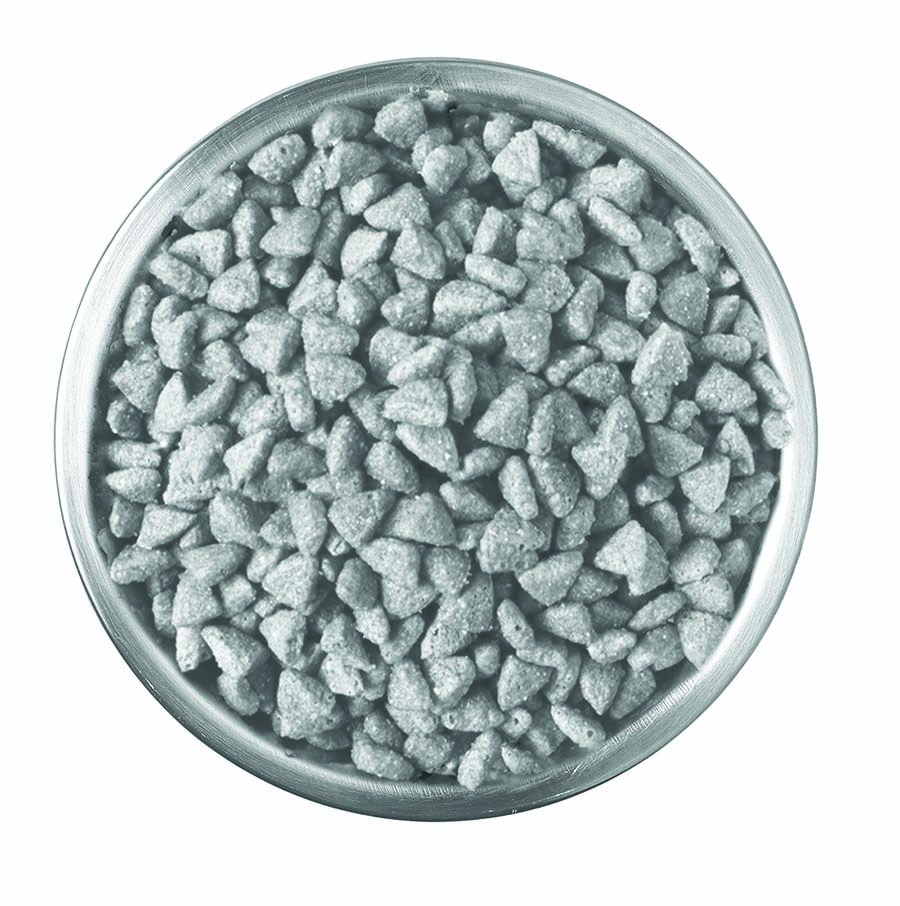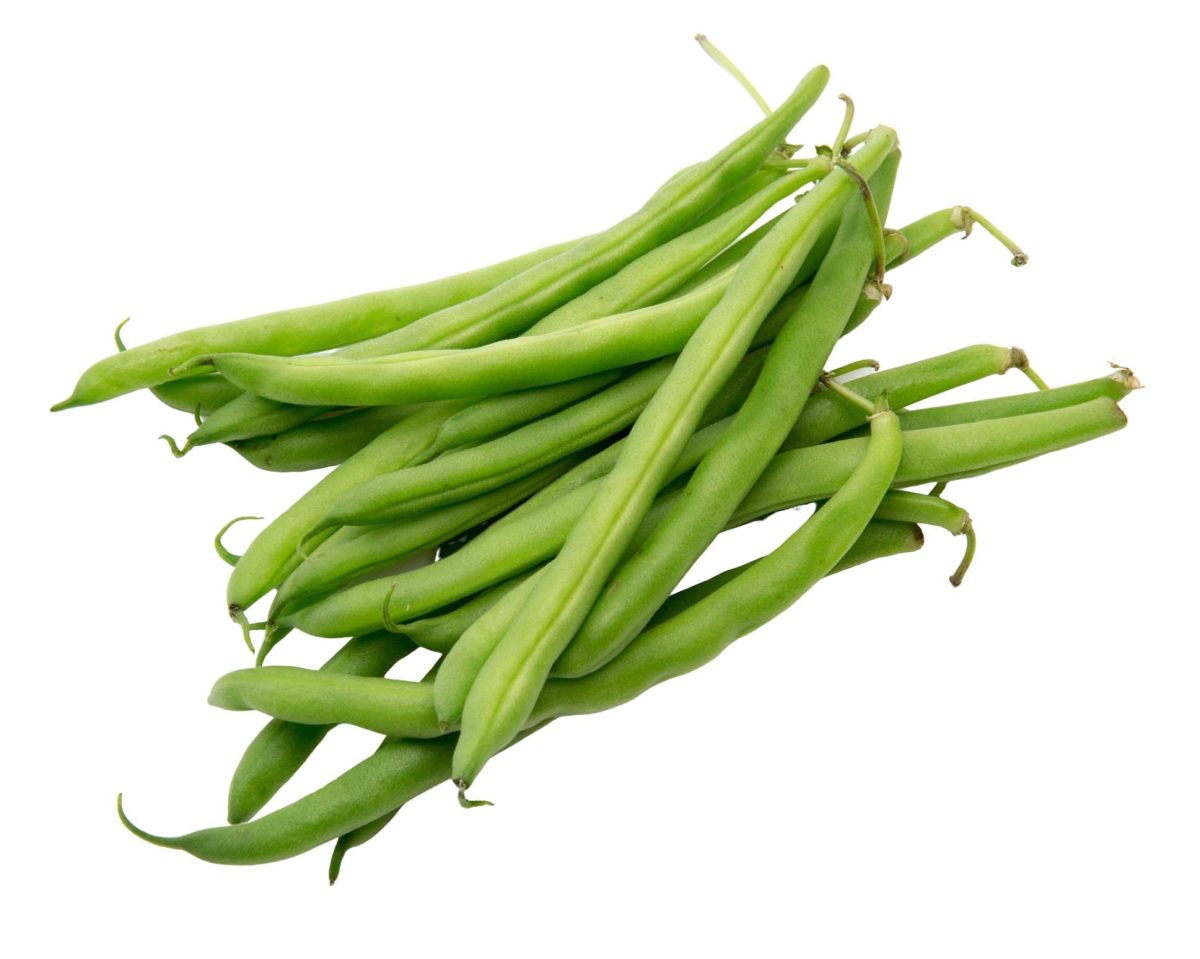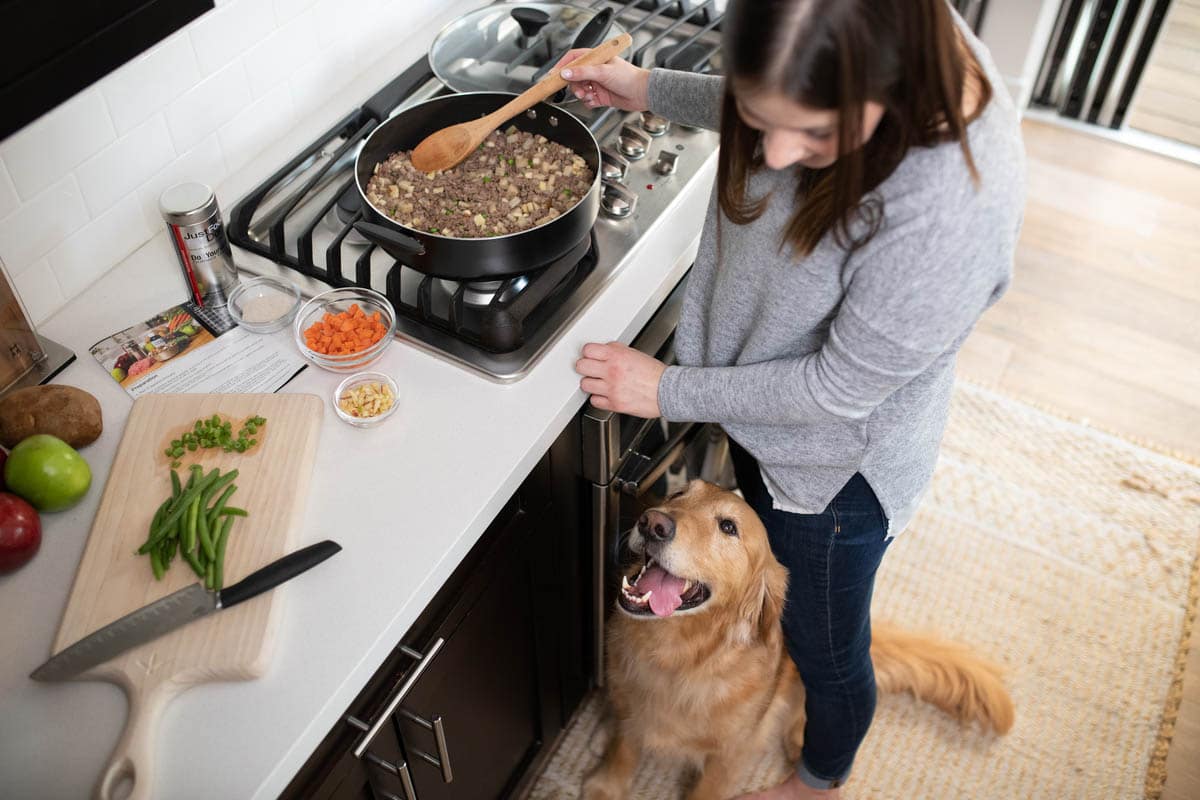Is Kibble Harming Your Dog’s Quality of Life?
A growing body of evidence suggests kibble is not the best choice for your furry friend. Here's what to know about your dog’s diet when it comes to fresh dog food vs kibble.
Kibble is the most common type of dog food in the world, but there is a growing body of evidence that suggests that it may not be the best choice for your furry friend. Here’s what pet parents need to know about their dog’s diet when it comes to fresh dog food vs kibble.
Kibble is highly processed.
Kibble is made from a variety of ingredients, including meat, grains, vegetables, and vitamins. However, kibble is akin to fast food. These ingredients are often processed at high temperatures, depleting many of the nutrients, which are then replaced by synthetic additives. Research shows that processed foods lead to obesity, cardiovascular disease, diabetes, cancer, and more.
Kibble contains fillers, meat byproducts, and preservatives.
In order to make kibble cheap to produce, manufacturers add fillers and additives to the food. Fillers include things like corn, wheat, and soy, which are not natural foods for dogs. Additives include artificial flavors, colors, and preservatives.
Meat byproducts are the parts of an animal that are not considered to be “meat,” aka, not fit for human consumption. These parts are from questionable protein sources and can include (sometimes diseased or antibiotic-filled) organs, bones, spleens, blood, and other tissues. This is legal and accepted under the Association of American Feed Control Officials (AAFCO) guidelines.
Kibble is difficult to digest.
The high-heat processing that kibble undergoes can make it difficult for dogs to digest. This can lead to digestive problems such as gas, bloating, and diarrhea.
What about raw food diets?
There are a few “fad” pet diets out there including vegan, grain-free, air-dried, freeze-dried, and raw diets. Feeding dogs raw dog food is generally not recommended, as raw meat puts both humans and dogs at risk for bacteria like salmonella and E.coli. Opt for lightly cooked meat instead, which is safer and preserves the most nutrients for your dog’s needs.
Why hasn’t my vet told me about the risks of kibble diets?
It may seem odd to read about dry pet food diets being potentially dangerous. After all, you may not have been told anything like this by a veterinary nutritionist. The reality is, many vets still don’t know that kibble is not the best food for dogs because Big Kibble funds the nutrition research.
Vet school courses, lectures, and even textbooks on pet nutrition are funded or sponsored by massive corporations. While the research and education funded by Big Kibble may be well-intentioned, it’s also very effective marketing.
Science-Backed Benefits of Fresh Dog Food
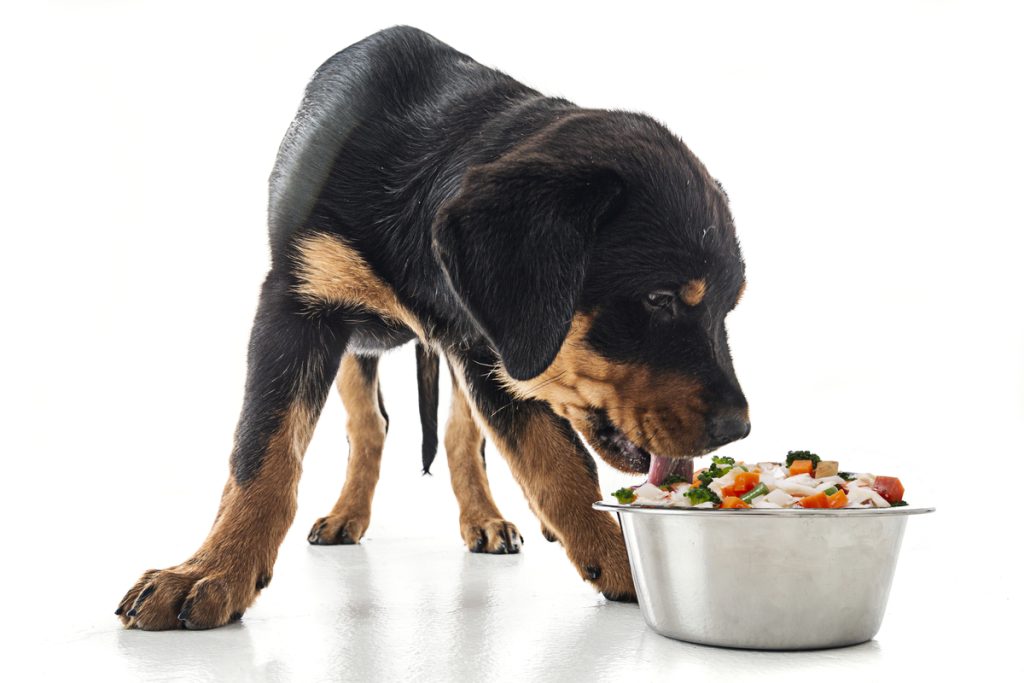
There are several reasons why fresh feeding is considered superior to dry dog food.
- Nutritional value: Fresh food is typically higher in moisture and nutrients than kibble. This is because the high temperatures used to cook kibble can destroy some of the nutrients in the food.
- Digestibility: Dog food diets with fresh ingredients are more easily digested than kibble (by a whopping 40%). This is because the moisture in fresh food helps to break down the food particles, making them easier for your dog’s body to absorb.
- Better taste: Fresh food is often more appealing to picky eaters than kibble. This is because fresh food is made with real, whole ingredients that dogs recognize and enjoy.
- Allergies: Fresh food may help to reduce the risk of allergies in dogs. This is because fresh food is typically made with a limited number of ingredients, which can help to identify any allergens that your dog may have sensitivities to.
- Fewer and smaller poops: Less waste in = less waste out. Data published in the peer-reviewed Journal of Animal Science shows that dogs who ate fresh whole food absorbed more nutrients and consumed a larger volume of food than when on a diet of processed kibble. Additionally, the dogs fed a fresh whole food diet produced up to 66% less poop than when eating premium kibble and up to 41% less feces when fed a feed-grade fresh processed brand.
JustFoodForDogs fresh food diets have been clinically shown to boost the immune system of healthy dogs that eat our food over kibble. We’re also the only fresh dog food brand to test our food in clinical trials. Our competitors actually cite our research to market their brands.
Start Feeding Fresh for 50% off
Fresh Dog Food vs Kibble
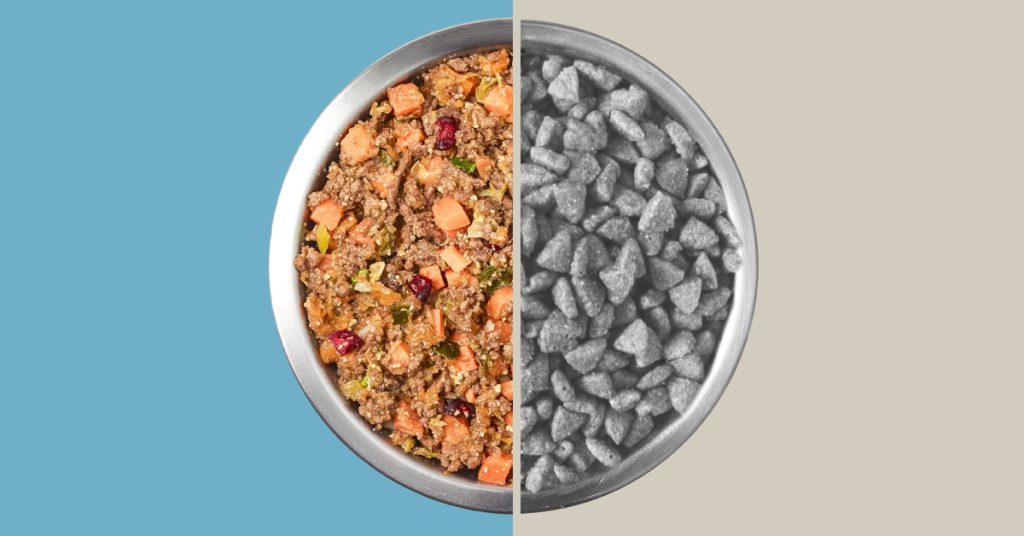
Fresh dog food vs kibble: which is best? Ultimately, the health benefits of human-grade, high-quality ingredients in dog food far outweigh those of dry dog kibble.
Recent research has taught us that genetically, humans and dogs are actually very similar. So it makes sense that nutritional standards for humans should not be that different from our dogs’.
Dog owners who switched their pets to fresh food found aspects of their dog’s health and well-being— from shinier skin and coat to healthier stools and higher energy levels — improved after just two weeks.
While fresh dog food subscriptions can get expensive, there is the cost-effective option of making your dog’s food at home. Homemade diets are easy as long as you use the right nutrients. JustFoodForDogs DIY Kits come with everything your dog’s diet needs to meet its daily nutritional requirements.
In addition, if your dog has health issues that require special dietary needs, JFFD can create a vet-developed customized meal plan or DIY nutrient blend kit complete with ingredient lists and recipe instructions.
Transitioning Your Dog to Fresh Food from Dry Kibble

Pet owners interested in making the switch to fresh pet food options should take things slow. Mix your own dog’s current dry food with its new fresh food by gradually decreasing the amount of old food and increasing the amount of new food over a period of 7 days.
Dogs of all life stages can benefit from fresh food diets. Talk to your veterinarian about switching your dog to a fresh, balanced diet of whole-food ingredients that meet their nutritional needs. They can help you choose portion size based on your dog’s weight, activity level, and life stage.
For more information on kibble vs. fresh, watch this clip of Dr. John Tegzes, VMD, BADVT, a board-certified veterinary toxicologist:
This content is for informational use only and does not replace professional nutrition and/or medical advice, diagnosis, or treatment. It is not a substitute for and should not be relied upon for specific nutrition and/or medical recommendations. Please talk with your veterinarian about any questions or concerns.
Lane, Melissa M., Elizabeth Gamage, Shutong Du, Deborah N. Ashtree, Amelia J. McGuinness, Sarah Gauci, Phillip Baker, et al. 2024. “Ultra-Processed Food Exposure and Adverse Health Outcomes: Umbrella Review of Epidemiological Meta-Analyses.” BMJ 384 (8419): e077310. https://doi.org/10.1136/bmj-2023-077310.
“Abstract.” 2014. Journal of Animal Physiology and Animal Nutrition 98 (6): 1187–1201. https://doi.org/10.1111/jpn.12269.
Tran, Quang D, Wouter H Hendriks, and Antonius FB van der Poel. 2008. “Effects of Extrusion Processing on Nutrients in Dry Pet Food.” Journal of the Science of Food and Agriculture 88 (9): 1487–93. https://doi.org/10.1002/jsfa.3247.
